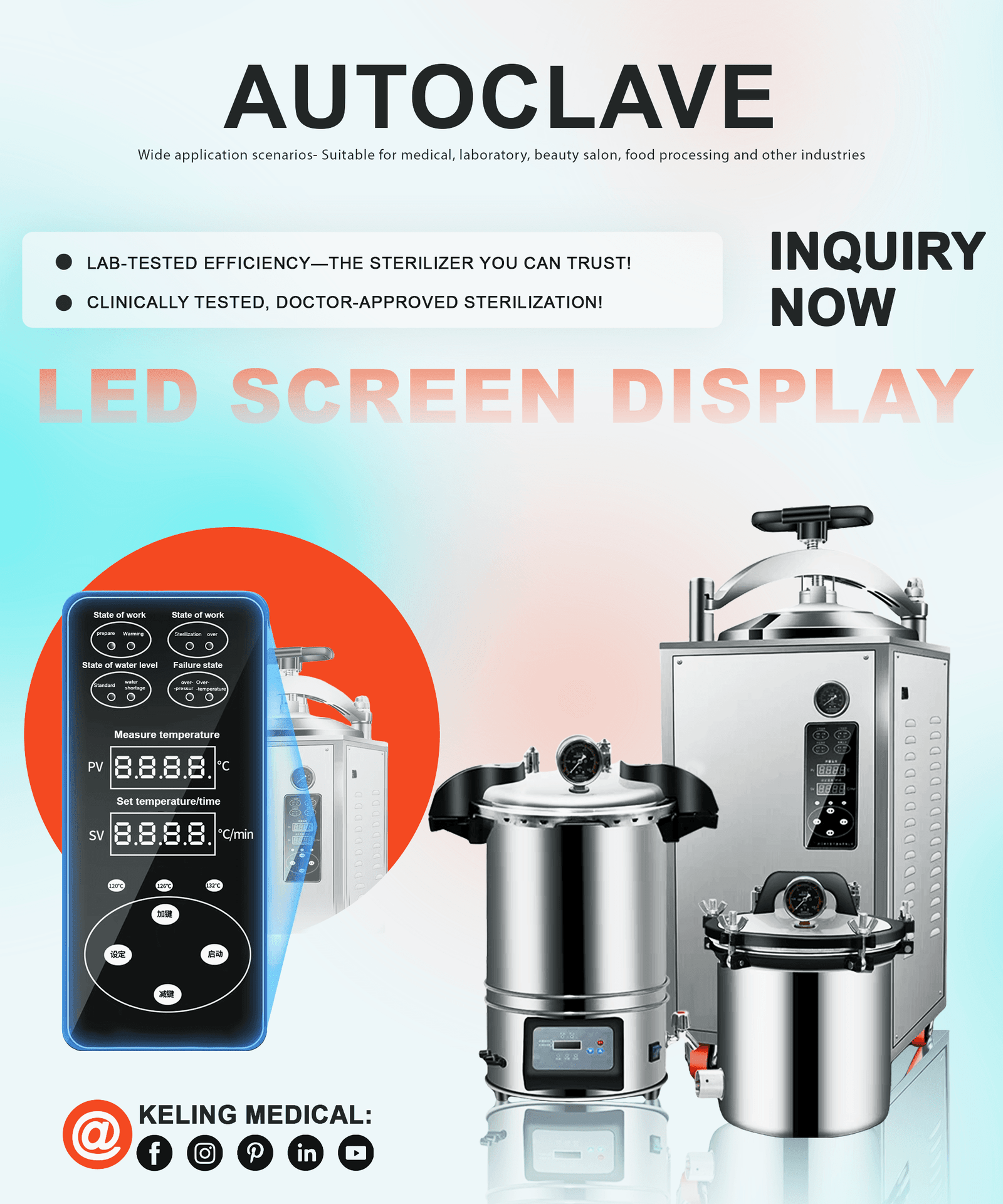
Different autoclave machines vary in performance and quality. Finding the ideal autoclave for your tattoo studio poses a significant challenge due to the wide range of available options on the market. The following article provides essential information on what to consider during an autoclave machine purchase and maintenance advice for extended use.
Multiple elements need to guide your choice when you select an autoclave machine for your tattoo studio. Let’s break these down one by one:
Your autoclave needs to match the daily quantity of tools you require to sterilize.
Tattoo studios with space constraints and minimal sterilization requirements benefit from using compact tabletop autoclaves.
Busy studios that need frequent sterilization cycles need larger autoclaves with higher capacities.
Evaluate your tool usage per session to select a machine that will manage your workload effectively.
Autoclaves feature a range of sterilization cycles that meet the requirements for different tools and materials.
Quick Cycles are ideal for studios that require rapid sterilization processes.
Certain autoclaves provide options to modify both temperature and pressure settings to meet particular sterilization requirements.
Choose an autoclave with dependable drying capabilities to maintain sterility after the sterilization process.
Autoclaves designed with user-friendliness principles help medical professionals save time while minimizing the risk of operational mistakes. Look for features such as:
Digital Displays: For monitoring sterilization progress.
These programs are designed to streamline operations for standard sterilization tasks.
Automatic Shut-Off: Enhances safety and convenience.
The autoclave you choose needs to comply with both local and international health and safety regulations. Look for certifications such as:
ISO Certification confirms that the machine fulfills worldwide quality requirements.
The CE Marking shows that a product meets the required European standards for health, safety and environmental protection.
U.S. studios must obtain FDA approval as it represents a mandatory requirement.
Operating with a certified autoclave protects your business from legal problems by meeting health regulation requirements.
An excellent autoclave combines long-lasting construction with user-friendly maintenance features. Consider the following:
Chambers made from stainless steel demonstrate exceptional durability while resisting corrosion.
Extended warranty periods demonstrate the manufacturer’s trust in their product’s quality.
Replacement parts must be readily accessible for quick procurement.
During your autoclave shopping process prioritize these essential features.
Small studios benefit from autoclaves with compact design because they require limited space.
This autoclave performs effective sterilization across different types of tools such as hollow and wrapped instruments.
The feature of energy efficiency helps lower operational costs over time.
Quiet Operation ensures noise levels stay low in the studio setting.
Regular maintenance is vital for optimizing the performance of your autoclave machine. These instructions will help you maintain the autoclave machine over time.
The chamber should be cleaned after every use to eliminate any remaining residue or debris. This prevents clogging and ensures efficient sterilization.
To avoid damaging the machine over time, distilled water should be used to keep mineral buildup from forming.
Make sure to examine both door seals and gaskets to detect any wear and tear. Replace seals and gaskets when necessary to ensure effective operation seal integrity.
Follow the manufacturer’s directions for machine cleaning, maintenance procedures and operation processes. Adherence to manufacturer guidelines allows the machine to function both safely and efficiently.
Professional technicians should service your autoclave annually to catch and resolve potential problems before they worsen.
Selecting the proper autoclave machine for your tattoo studio represents an essential investment that will protect both your business safety and success. Selecting a machine that fits your needs requires evaluation of size, sterilization cycles, ease of use and health regulation compliance. Routine maintenance will help your autoclave operate dependably throughout its lifespan.
Keling Medical offers expert guidance and top-of-the-line autoclave machines designed for tattoo studio applications for those seeking quality sterilization equipment.
Tattoo studios use autoclaves to sterilize reusable tools, ensuring they are free from harmful microorganisms and safe for client use.
The size depends on the volume of tools you need to sterilize. Small studios can opt for compact tabletop models, while larger studios may require high-capacity machines.
The autoclave chamber should be cleaned after every use, and a deep cleaning should be performed weekly or as recommended by the manufacturer.
No, tap water contains minerals that can damage the autoclave. Always use distilled water to prevent buildup and ensure efficient operation.
Look for certifications such as ISO, CE marking, or FDA approval, depending on your region’s requirements.
For more information about choosing the best autoclave machine for your tattoo studio, reach out to Keling Medical:
Email: inquiry@shkeling.com
WhatsApp: Click to Chat
Website: https://autoclaveequipment.com/
Let us help you find the perfect autoclave solution for your tattoo studio!

The autoclaving process serves as an essential sterilization practice utilized across medical, laboratory, and research facilities to protect glassware and instruments through effective sterilization. High-pressure steam eliminates pathogens during this

The autoclaving process serves as an essential sterilization practice utilized across medical, laboratory, and research facilities to protect glassware and instruments through effective sterilization. High-pressure steam eliminates pathogens during this
The autoclaving process serves as an essential sterilization practice utilized across medical, laboratory, and research facilities to protect glassware and instruments through effective sterilization. High-pressure steam eliminates pathogens during this
The autoclaving process serves as an essential sterilization practice utilized across medical, laboratory, and research facilities to protect glassware and instruments through effective sterilization. High-pressure steam eliminates pathogens during this
The autoclaving process serves as an essential sterilization practice utilized across medical, laboratory, and research facilities to protect glassware and instruments through effective sterilization. High-pressure steam eliminates pathogens during this
The autoclaving process serves as an essential sterilization practice utilized across medical, laboratory, and research facilities to protect glassware and instruments through effective sterilization. High-pressure steam eliminates pathogens during this